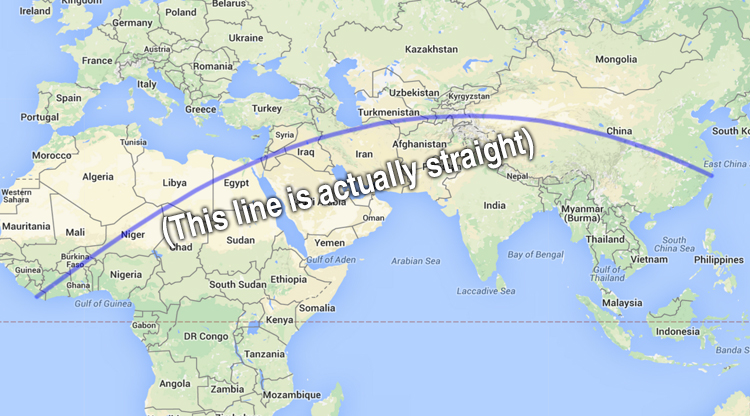China Chronicles is when we have a look back at 5,000 years of Chinese history - and pick out something pertinent...
Few are the men who would be willing to lay down their life for the written word; but T. H. Tsien, who died earlier this month at the age of 105, was one of them. In 1941, Tsien rescued over 30,000 books from war-torn China, sneaking the thousand-year-old volumes past customs in Japanese-occupied Shanghai. Had he been caught, he would have lost not just the precious volumes but his life as well.
Tsien's story illustrates not only the bravery of one man, but also the immense importance that the written word occupies in Chinese civilization. As the oldest writing system still in use, the history is long and storied, charted out by millenia by gradual evolution. In the traumatic 19th and 20th centuries after Chinese and Western civilization first collided, however, this process of change went into hyperdrive. In this edition, we look at same of the ways that Chinese was challenged and changed by modernity...
The late Qing and Republican eras were ones of great political uncertainty and constant intellectual self-scrutiny and exploration. Educated Chinese, seeing their country battered and humiliated by an ever-broadening cast of tiny 'barbarian' countries, studied every kind of political theory and debated new possibilities for national strengthening progress – a cause for which any cornerstone of Chinese civilization, even the Chinese language itself, could be sacrificed for the greater good. Intellectuals across the empire sought to answer the question put forward by the scholar Feng Guifen – "why are they small and yet strong? Why are we large and yet weak?" – and many answered, "because of our language."
Matteo Ricci and Michele Rugieri were the first to systematically apply the roman alphabet to Chinese in 1588, but this was only to assist other Jesuit missionaries in learning Chinese and had little effect on Chinese society. The first to arouse Chinese interest in alphabetizing their own language was Nicolas Trigault, who was also the first to suggest that the lack of phonetic alphabet not only made the job of foreign learners more arduous, but complicates communication between the Chinese people themselves, united by a single written language but divided by innumerable, mutually unintelligible regional dialects.
.jpg)
Fr Matteo Ricci
These later attempts by the Jesuits in the alphabetic writing of Chinese, although still intended mainly as aids to fellow missionaries and not as proposals to reform the Chinese language, began to exert some influence over the thinking of Chinese intellectuals. The first comments to be recorder by a Chinese scholar on the subject exalted the idea of a phonetic alphabet; he wrote, "[i]n the West... in the basis of ideas they form sounds, and the basis of sounds they form words, these being unique and distinctive. Isn't this better?"
This comment was a portent of later developments. Chinese criticism of their own language come to a head in the 19th century, as the efforts of Protestant Missionaries and Chinese reformers did not stop at annotating Chinese script for easier learning and standardization but sought to replace characters with phonetic script. The impact of foreign imperialism and responses to the Western presence in China around this time were complex and profound, culminating in what Zeng Guofan predicted would be "not just a crisis for our Qing dynasty, but the most extraordinary crisis of all time for the Confucian teachings."
To resolve this crisis, Wang Chao, Secretary of the Board of Rites and cause célèbre of the Hundred Days' Reform, espoused better education for the common people, and the greatest obstacle to this was, in his mind, the lack of "a script that will bridge the spoken and written languages and unite speech and writing." Wang set about creating this bridge once he had regained his freedom, and 1900 produced a work entitled Mandarin Phonetic Alphabet. Towards the end of 1905 and the beginning of 1906, Wang Chao's Mandarin Alphabet began to appear on street corners and in pamphlets, and schools were established to teach the writing system – twenty in Beijing alone – through which tens of thousands became literate. The scheme even managed to impress Yuan Shikai, who drew up plans to promote the scheme in the areas he controlled.
Early Communist ambitions were to do away with Chinese characters entirely; writing in 1958, Zhou Enlai predicted that "like the languages of all other countries, Chinese language is bound to become a phonetic language at long last." In arguing the case for what would become known as pinyin, he made the point that it would be of invaluable assistance to foreign learners of the Chinese language.

A Communist newspaper replacing characters entirely with the Latin alphabet
This represents a monumental departure from antiquated modes of Chinese thinking about foreigners learning their language, when the Qing promoted a policy of exclusion that sought to impede the attempts of various foreigners to acquire the Chinese language. At the Russian-Mongolian border, for instance, merchants were instructed to master Russian so as to prevent any Russians from learning Chinese and thereby protect secrets of trade and policy.
Similarly, in Canton foreigners were forbidden to buy Chinese books or learn Chinese, and all business had to be conducted in pidgin English. One Chinese teacher was even beheaded for giving lesson to foreigners, and Robert Morrison recounts how he had to study at night in a room with the lights carefully screened, to protect his own teacher. When the United States signed the Treaty of Wanghia with the Qing in 1844, they expressly included an article allowing US citizens "to employ scholars and people of any part of China... to teach any of the languages of the Empire."
Edward Said wrote that "knowledge of subject races or Orientals is what makes their management easy and profitable; knowledge gives power, more power requires more knowledge," and through this prism it is understood that the Qing sought to limit the foreigners' knowledge of China so as to prevent them from assuming this form of dominance over the country. In doing so, however, they locked themselves even more firmly in the formulations of Orientalism: China became "the great Asiatic mystery" and ensured that "it is Europe that articulates the Orient." With silence imposed upon the Chinese, the foreigners were handed a monopoly in creating a China fashioned by their own ignorance, prejudices, fantasies and fears.
For forward-looking Chinese, the Western alphabet became synonymous with Western science and technology, one more component part of the total package that was modernity. Lu Kan-chang, the Sinagpore-educated Fujianese assistant to English missionary John Macgowan, saw a direct link between alphabetic writing, scientific study, and national progress. He concluded that the "ability to have a love of learning and a knowledge of theory depends on using a phonetic system of writing; then, once the alphabet and spelling have been mastered, everything can be read by oneself without teacher." He estimated that it takes children ten years in total to master the Chinese language, and that with a phonetic alphabet these ten years could be better spend learning the modern sciences.
This was the mid-19th century, but the argument has sustained itself well into the 20th century. One of the reasons put forward by Communist-era language reformers to teach Chinese by means of pinyin spelling – and to argue for the practical superiority of phonetic systems based on the Latin alphabet rather over other symbols such as those of zhuyin fuhao (bopomofo) – was that the Latin alphabet was the language of algebra, geometry, chemistry and physics, and is indispensable in learning these disciplines.
One observation that struck a number of foreign observers in China was how language was used to mark social difference, and to justify and perpetuate the privileges of the educated class, the purposely complicated characters and made grammar abstract so as to surround their command of language with a certain mystical element, and confound and deter the uninitiated. The classical Chinese paradigm dictated that knowledge and power were coterminous, and, with China's humiliations mounting, this paradigm was internationalized: the most literate nation was to be the strongest.
Liang Qichao, noting that literacy was 96-7 percent in the United States and Germany, 80 percent in Japan and yet only 20 percent in China, decided it was necessary to determine what differentiated China from these other nations, and concluded that a phonetic alphabet was the principle difference. After China's decisive defeat in the 1894-5 Sino-Japanese War, it was proposed that what made the Japanese soldier so much more efficient than his Chinese counterpart was the ability of the former to read, born of Japan's use, though limited, of alphabetic script. Continuing into the early twenties, Mass Education Movement leader James Yen accentuated this point by working under the slogan "an illiterate nation is a weak nation."

Scholar, journalist, philosopher and reformer Liang Qichao
Despite various foreigners who have referred to Chinese characters as "hieroglyphs" and expected Chinese to be able to read the ancient Egyptian pictograms as naturally as their own mother tongue, the Chinese language has been changing and evolving continuously over its thousands of years of use, never sitting completely idle either in written form, grammar or pronunciation. Cohen also suggests that we appreciate the complexity of Chinese society and how it operates differently as various levels of prestige and privilege.
In dynastic China, the common people were historically the reformers and the scholars and the writers the conservatives: both the Ming and Qing governments stepped in to oppose simplified character forms that were in common use by the people. Where language was allowed to stagnate, it was the product of official atrophy and anxiety, not a curiosity of local modes of thought, as through Chinese history and to this day it is easy to see that ordinary people in China have consistently interacted with their language creatively.
It is also important not to overemphasize the role of foreign sinologues in this process. Although many romanizations for Chinese were produced around the 19th century by Western missionaries, most of these were for the use of other missionaries only and were concentrated on the common dialects of the south China coast where most treaty ports were located. Only 1-2 percent of the total number produced were concerned with Mandarin, and this is because the missionaries simply had different priorities. They were not necessarily concerned with creating a standard phonetic alphabet so as to promote literacy and greater national cohesion through a common language – this has been a thoroughly Chinese-led movement propelled by Chinese innovation.
By explaining developments and events according to the actors within China and how they interacted with other individuals, institutions, and society as a whole, it is possible to see how progress was not based simply upon an necessarily European modernity, but as part of a continuous and ongoing process of determining what Chinese modernity should consist of.





















0 User Comments